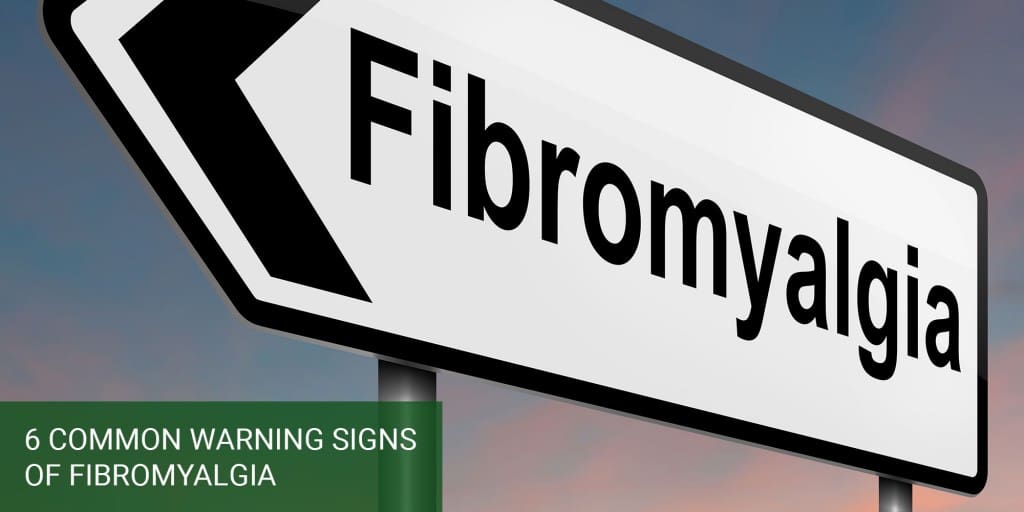Fibromyalgia is a common chronic pain disorder that affects about 10 million people in the United States. It can be challenging for doctors to diagnose fibromyalgia, partly because symptoms often vary from person to person. Currently, there are no definitive tests to prove that a patient is suffering from the disorder. If you’re worried about pain you or a loved one may be experiencing, watch for these 6 common warning signs of fibromyalgia.
Learn more about fibromyalgia warning signs in this video:
Warning sign #1: Sensitivity to touch
One of the most common symptoms of fibromyalgia is allodynia, or a sensitivity to touch. Simple everyday gestures such as a pat on the back or a rub on the arm can result in extreme pain.
Your skin isn’t the only part of your body that might be sensitive to touch. Tender points may also cause you pain if pressed or touched. Doctors may even use these tender points to give a fibromyalgia diagnosis.
Common tender points of fibromyalgia include:
- front and back of the neck
- mid- to upper-back of the shoulders
- upper chest
- elbows
- upper buttocks
- hips
- knees
Fibromyalgia warning signs #2: Fibro Fog
People with fibromyalgia often have cognitive difficulties that accompany their other symptoms. Fibro fog refers to these symptoms. With fibro fog, you might have short-term memory loss, difficulty finding word substitutions and disorientation that can last up to a minute per episode.
Other symptoms of fibro fog include:
- misplacing objects
- becoming easily distracted
- forgetting plans
- difficulty carrying on conversations
- inability to remember new information
Fibro fog has no specific cause. However, sleep problems, low thyroid levels or changes in the blood flow to the brain may be to blame.
Warning sign #3: Tingling
Another distressing, yet common, symptom of fibromyalgia pains is widespread tingling or numbness. These sensations are usually localized to specific areas of your body, specifically in your hands, arms, feet, legs or sometimes even your face.
When you have fibromyalgia, the tingling or numbness you feel may be downright debilitating. The tingling you experience will generally increase when you are anxious or when you find it difficult to fall asleep. In addition, tingling can become worse at specific times of day such as first thing in the morning or late at night. The frequency of tingling can also vary according to your schedule.
Fibromyalgia warning signs #4: Excessive fatigue
If you are living with and treating fibromyalgia, you may find sleep hard to come by. The sleep disturbances that accompany fibromyalgia can affect how quickly you get to sleep, how deeply you sleep and how long you sleep each night. More likely than not, lack of good sleep will only exacerbate your other symptoms.
The fatigue you feel with fibromyalgia is usually an all-encompassing exhaustion that eventually interferes with your regular activities and life. The exhaustion you feel may come on suddenly, draining you of all energy.
There are several reasons you might have excessive fatigue. There are 2 common sleep disorders that overlap with fibromyalgia: chronic fatigue syndrome and restless leg syndrome.
Chronic fatigue syndrome is characterized by disturbed sleeping for more than six months, along with a sore throat, enlarged nodes, and muscle and joint pain.
Restless leg syndrome has been shown to be more prevalent in individuals who have fibromyalgia. If you have this chronic condition, your legs tend to be restless when you sleep. This leads to non-restorative rest at night.
Fibromyalgia warning signs #5: Migraines
Regular, persistent migraines occur in more than half of patients with fibromyalgia. A recent study showed that the rate of fibromyalgia is higher in patients who have chronic migraines compared to tension headaches. This suggests a possible link between the conditions.
In many cases, these migraines are due to an over-response to stimuli. The triggers for both migraines and fibromyalgia may be the same. These include light, noise, touch and/or joint stiffness.
Trigger management is important to prevent migraines from happening. Migraines due to fibromyalgia can also be attributed to hormone changes in the body and might worsen with lack of sleep and depression.
Fibromyalgia warning signs #6: Depression and anxiety
It’s not uncommon for those who have fibromyalgia to also suffer from mental health problems. This includes anxiety and depression. Around 20% of people who suffer from fibromyalgia report a co-occurring mental health condition. The pain, fatigue and stress that fibromyalgia brings can cause many people to withdraw from their daily activities and social lives.
Canceling plans – or not making them at all because of flare-ups – can cause isolation, resulting in depression. Not knowing when your next symptoms will occur can contribute to a constant state of anxiety.
Many fibromyalgia patients have been told for years that their pain is just in their head. This can discourage many of them to seek out help from a mental health specialist. However, there’s been a shift in the way doctors treat patients, so don’t be discouraged to seek out a psychologist or psychiatrist.
The bottom line on warning signs of fibromyalgia
If you are suffering from these common warning signs of fibromyalgia and widespread pain across your body, talk to your health care professional. While a diagnosis may be difficult to hear, remember that effective treatment for fibromyalgia is possible. This includes pain relievers, physical therapy and antidepressant medications.
Many people also benefit from natural remedies and light physical activity such as yoga, acupuncture and meditation. You can also look into changing your diet for day-to-day pain relief.
Have you noticed any warning signs of fibromyalgia?
Tell us about your pain journey in the comments.
Are you on Facebook?
